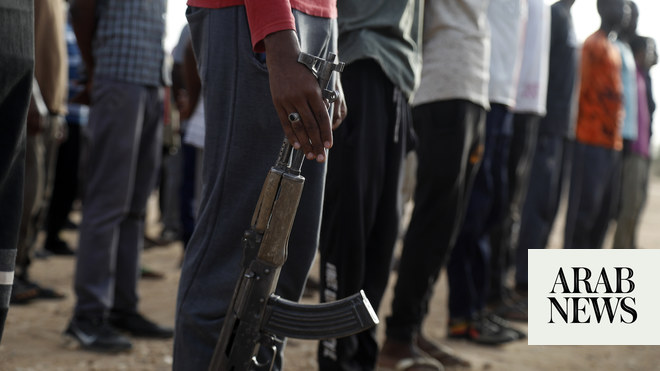
The Joint Incident Assessment Team (JIAT) in Yemen confirmed on Tuesday that its reports are prepared according to conventional international humanitarian standards and no political bias.
Responding positively to international reports, JIAT Spokesman Mansour Al-Mansour said the panel welcomed reports and discussions put forth by all international organizations.
In a conference held in Riyadh, Mansour reviewed credibility-ensuring procedures followed by the assessment team for conducting reports and gathering evidence.
He also stressed that JIAT is independent and impartial and “stands at the same distance from all parties to the Yemeni conflict,” the Saudi Press Agency reported.
Mansour presented videos dating back to the moment Al-Dilid Bridge, which links Ibb governorate to Houthi-held Sanaa, was targeted. Footage showed the absence of civilians during the attack, debunking reports claiming of victims being killed or injured by Arab Coalition operations.
Being used by coup militias for logistics purposes and a supply route for armed factions in Sanaa, the bridge made for a valid military target.
JIAT reviewed a list of cases, some of which date back to 2015.
In the case of 86, The United Nations High Commissioner for Human Rights report in August 2016 alleged that on July 7, 2015, an Arab Coalition plane dropped a bomb on Al-Wahat Mosque, in Lahij governorate, which killed 10 people and wounded 15 others.
He pointed out that evidence collected by JIAT shows that Coalition forces carried out an air mission on a militant target located some 300 meters away from the Mosque.
After reviewing satellite imaging, Mansour said the investigating team also found that the building was destroyed two months before the date allegations presumed.
As for case of 87, Mansour addressed the Human Rights Watch report issued in November 2015 alleging that on May 12, 2015, a plane dropped five bombs on Shajaa market in the village of Zabid, Al-Hodeidah Governorate, which led to the death of 60 civilians and injured at least 155 others.
According to the group’s report, a delegated team inspected the site on July 26, 2015, and reported on three bombs hitting a three-story building in a commercial area. It added that explosions also destroyed two other buildings with another restaurant and four grocery stores.
Mansour said that JIAT found there were no air missions throughout Hodeidah province at the time.
In light of this, JIAT concluded that coalition air forces had not bombed Shajaa market in the village of Zabid.
Addressing other claims on Arab Coalition planes dropping three bombs on the cultural center in Saada and a nearby house, which led to the death of 28 people and injured three others, Mansour said that the center was being employed by Houthi militants for communication and expanding military propaganda.
JIAT’s report verified that Coalition forces adhered to rules of engagement, and that the air mission inventory, the post-mission report, video recordings, satellite imagery and evidence assessment show that on May 5, 2015, coalition air forces carried out an air mission against the cultural center in Saada city after it fulfilled criteria making it valid for military targeting.
In light of this, JIAT concluded that the targeting of the military center was consistent with International Humanitarian Law and its customary rule.
However, the probing team found that a bomb fell on a civilian housing unit due to a technical defect of aircraft systems. JIAT recommended Arab Coalition member states to undertake reimbursements for civilian losses, both human and material.












